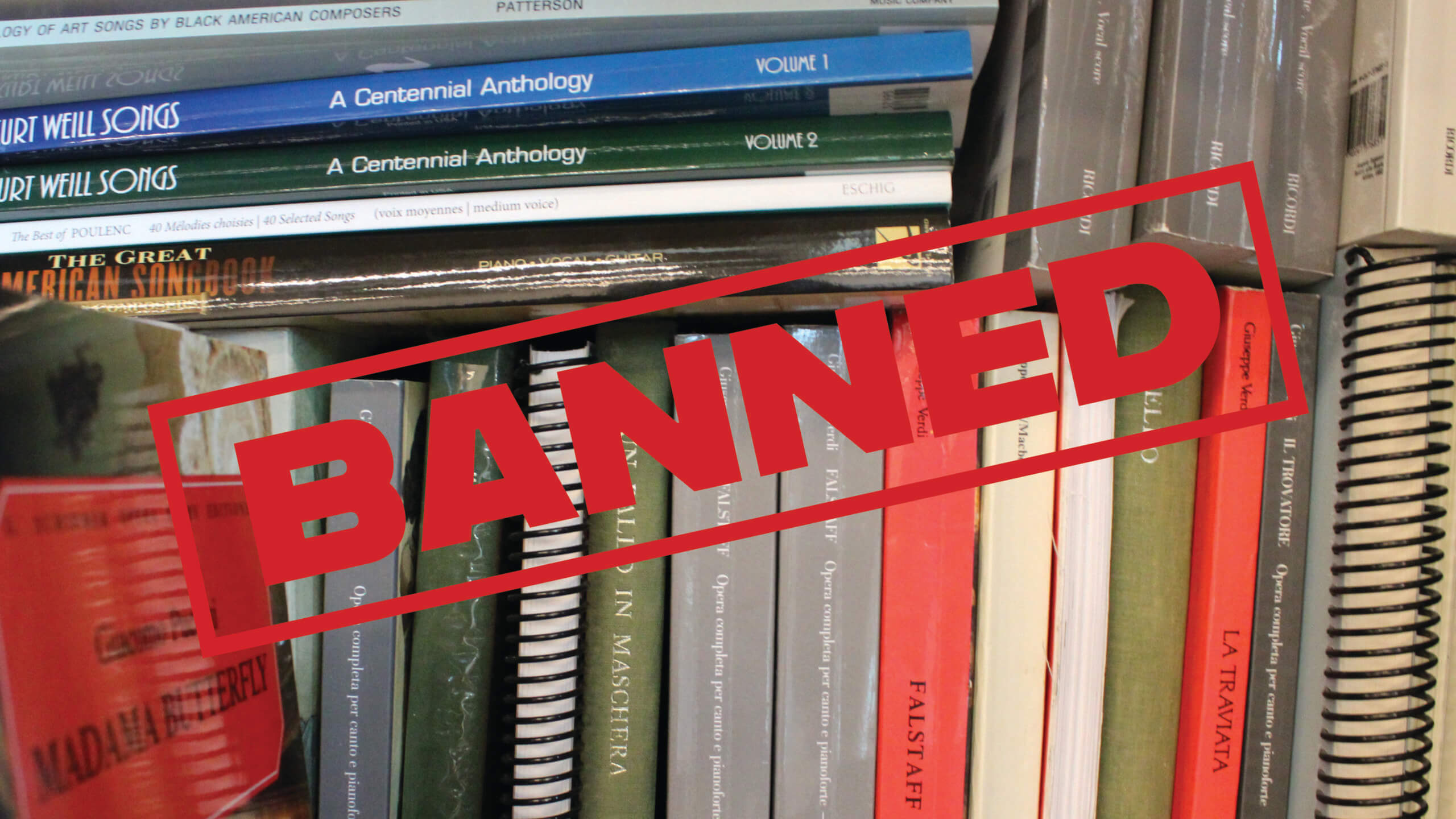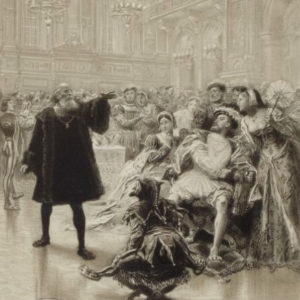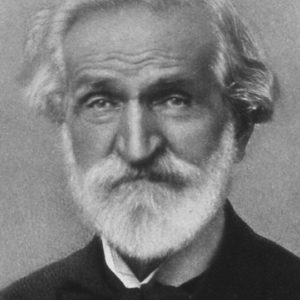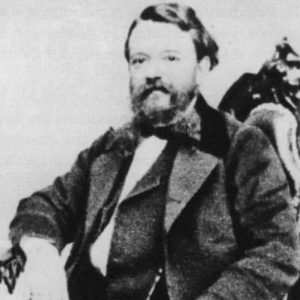Rigoletto Was a Banned Book

By: Angelica DiIorio and Bethany Wood
Art and literature can be very provocative. The arts can challenge people to look at the world around them in new ways and ask questions. While this very trait is what makes art so powerful, it is also what gets artists into trouble sometimes. Did you know Rigoletto was once considered too offensive to be performed exactly as the composer Guiseppe Verdi intended?
Today, when we think of censorship in the arts, conversations about banned books might come to mind. Recently, many books have come under fire for being ‘inappropriate’ and have been pulled from classroom shelves. In the 2021-22 school year, more than 2,500 books were banned in 138 school districts in 32 states, with more book bans expected in the 2022-23 school year. Rigoletto faced similar backlash on its journey to the stage and had to undergo some changes to be approved. Learn more about the history of censorship that surrounds this opera.
See Rigoletto this November! Tickets start at just $39>>
THE HISTORY OF AN EARLY BANNED BOOK: LE ROI S’AMUSE

Source: Bibliotheque Nationale de France
Censorship concerns with Rigoletto began with the source material for the opera, Victor Hugo’s play Le roi s’amuse. The play debuted at the Theatre Francais in Paris on November 22, 1832, and was banned the very next day because the French government stated that “public morality is outraged in numerous passages of the drama.” Victor Hugo was outraged at the censorship of his play and went to trial in December of the same year. At the trial, he made compelling remarks that speak to the deficits of banning books and the impact on artists: “…Today I am banned from the theatre, tomorrow I shall be banned from the country; today I am gagged, tomorrow I shall be deported; today literature is besieged, tomorrow it will be the state.” Despite his eloquent words, the play would not be permitted on stage for another fifty years.
“…Today I am banned from the theatre, tomorrow I shall be banned from the country; today I am gagged, tomorrow I shall be deported; today literature is besieged, tomorrow it will be the state.”
—Victor Hugo
VERDI FIGHTS AGAINST CENSORSHIP OF RIGOLETTO
When composer Giuseppe Verdi suggested Victor Hugo’s Le roi s’amuse as a source text for his next opera, the composer knew he would encounter opposition from the censors charged with protecting Italian audiences from lewd and provocative material.
Verdi saw tremendous dramatic potential in Le roi s’amuse, particularly in the central character, the jester Triboulet, who became the inspiration for Rigoletto. In a letter to the librettist Francesco Maria Piave, Verdi exclaimed, “Le Roi s’amuse is the greatest subject and perhaps even the greatest drama of modern times. Triboulet is a creation worthy of Shakespeare!!” Verdi feared that censors might prohibit the depictions of vice central to the plot and urged Piave to “turn Venice upside down and make the censors allow this subject.”
“Le Roi s’amuse is the greatest subject and perhaps even the greatest drama of modern times. Triboulet is a creation worthy of Shakespeare!!”
—Giuseppe Verdi
Piave and the management of Teatro La Fenice, Venice’s opera house, endeavored to do as Verdi asked, but once authorities had reviewed the libretto, the verdict was immediate: the Austrian Military Governor of Venice forbade the opera, calling the story “disgustingly immoral and obscenely trivial.”
While Rigoletto’s attempt to assassinate a noble did not sit well with the authorities, their main objection was the Duke’s licentiousness, particularly his conduct towards Gilda.

Source: Opera Lirica di Roma
The managers of Teatro La Fenice received permission to proceed with the opera if Verdi would reform the Duke’s treatment of women. Verdi refused, explaining to Piave that “all the dramatic developments result from the frivolous, licentious character of the Duke.” The Duke had to be an evil character for the plot to make sense. Verdi argued, “The Duke absolutely must be a libertine; without that, Triboulet’s [Rigoletto’s] fear that his daughter will emerge from her hiding place isn’t justified, the drama is impossible…on the conscience of an artist I cannot set this libretto to music.”
Ultimately, the censors agreed to allow Verdi’s opera if the composer changed the location and implications of some of the actions so as not to impugn any powerful noble families who might interpret the wickedness of the Duke as a slight on their own families.
Accordingly, the Duke in Rigoletto remains one of opera’s most despicable characters, author Nelly Forman describes him as a “chauvinist, womanizer and cad,” and in the 1920s, women at the Met turned their backs to the stage during Gilda’s entrance in act two to protest his behavior.
“The Duke absolutely must be a libertine; without that, Triboulet’s [Rigoletto’s] fear that his daughter will emerge from her hiding place isn’t justified, the drama is impossible…on the conscience of an artist I cannot set this libretto to music.”
—Giuseppe Verdi
WHAT MAKES A BANNED BOOK?

Source: Corriere della sera
The libretto for Rigoletto was approved in January of 1851 and premiered in Venice, Italy later that March. However, Hugo’s Le roi s’amuse was still banned in France. Despite being similar stories, Verdi’s opera was acceptable in one environment, but Hugo’s book was not in another. This tension brings up an interesting question as to how much culture can shape what allows something to be considered taboo within society. Certainly, changes were made to get the opera approved for the stage, most of which involved making the societal criticisms less personal. In other words, the Duke could still be a womanizer as long as he existed in Mantua, Italy instead of Venice where the opera was being performed.
Censorship is a tricky issue that has continued to impact artists for centuries. Laws and societal objections may differ from country to country, or state to state, making the same piece only acceptable in some spaces. Sometimes the label ‘banned book’ seems fitting, and sometimes it doesn’t. As Rigoletto has shown us, opinions on a piece can change over time. Luckily for us, no dukes or jesters were harmed in the making of our Rigoletto. Catch it live at the Ellie Caulkins Opera House.
Tickets for Rigoletto start at just $39. Come see it this November! >>
—
Rigoletto is no longer a ‘banned book,’ but there are still many works that make that list today. What is your favorite banned book? Let us know in the comments below!


